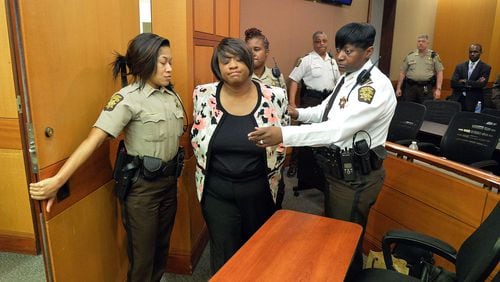The city of Atlanta is under a criminal investigation into whether officials deliberately delayed information requested by The Atlanta Journal-Constitution and Channel 2 Action News. The revelation about such tactics wasn't surprising to reporters regularly requesting information from agencies they cover.
The AJC’s education reporters request information from metro Atlanta’s major school districts with regularity, and often find that seeking the same information can result in responses that vary, from how long it will take to compile to how it will be delivered.
“This is not about only the interest of journalists, it’s about the public,” said Jonathan Peters, a media law professor at the University of Georgia. “The public that we all serve with the work we do.”
The Georgia Open Records Act states that public information should be made available “without delay.”
“Agencies shall produce for inspection all records responsive to a request within a reasonable amount of time not to exceed three business days of receipt of a request,” according to the Georgia Open Records Act. “In those instances where some, but not all, records are available within three business days, an agency shall make available within that period those records that can be located and produced.”
In the public education context, Peters said, agencies sometimes cite the Family Educational Rights and Privacy Act (FERPA) in denying information. FERPA protects selective student educational records who receive funding under an applicable U.S. Department of Education program.
“For schools this is just a be-all, end-all exemption machine,” he said. “Schools just, in anything they would like to withhold, cite FERPA.”
Peters said open-records laws are not just about serving journalism or journalists, mentioning that corporations, competitive organizations and journalists are among those most often requesting information from public agencies.
“In a democratic society, if we’re going to hold (agencies) accountable, we need access to information about the way they make decisions and exercise that power,” he said.
In December 2016, The Atlanta Journal-Constitution requested "bus crash data" from metro Atlanta's six main school districts.
The requests were made to compare information received from the Georgia Department of Education, which should receive information from districts after each accident.
Many sent the information, in spreadsheet form, within 24 hours. Others were not as helpful.
Gwinnett County Schools officials said the district kept its data on printed sheets, and charged more than $400 to retrieve it. Charles White, Clayton County Public Schools’ custodian of records, said no responsive record on “bus crash data” existed.
“Please note that School Bus Accident Report data is submitted to the state,” he wrote on Dec. 16, 2016. “Not all accidents are crashes.”
The information was received nearly three weeks later, after a second request seeking “bus accident” data.
School districts spend a lot of time parrying the press, Peters said, using common forms of gamesmanship including delayed record release or high fee estimates for documents requested, as well as redacting some information or denying requests altogether. Documents give insight into many corners of the school district, from how much staffers are paid, to how sexual harassment and other complaints are handled by school systems.
“Some of the games that public officials play seem to have no bounds,” he said.
About the Author







